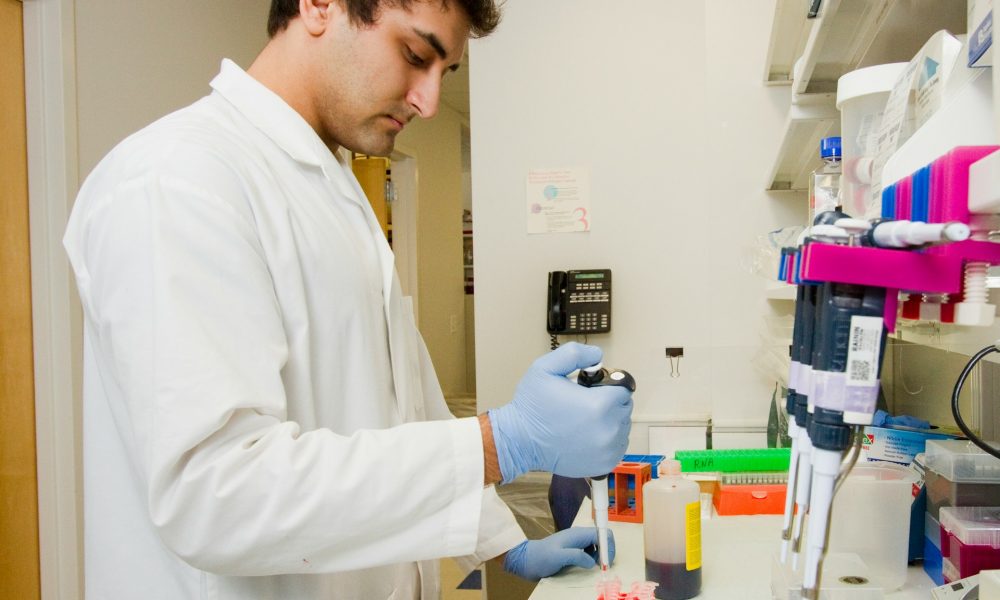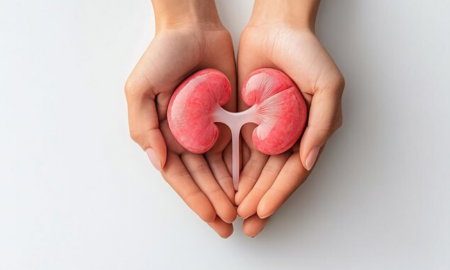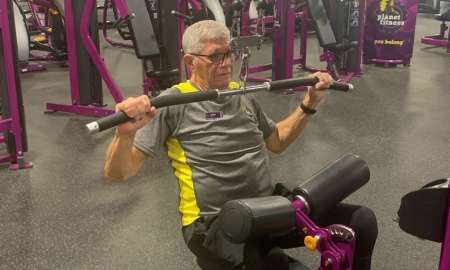
Is It Okay to Exercise Before a Blood Test?

Can you work out before blood work? It is a common question, especially for those who maintain a regular exercise routine. The short answer is, it depends. The impact of exercise on blood test results can vary. Hence, understanding these nuances is essential to ensure accurate results.
Now, let’s explore the reasons why you might want to reconsider your workout before a blood test and discuss how exercise can influence your test results:
Can You Work Out Before Blood Work?
So, can you work out before blood work? While it might seem harmless to stick to your routine, the reality is that exercising before a blood test can significantly alter your results. The changes in your body that occur during exercise – like increased levels of certain substances – can potentially skew your test results, leading to inaccurate readings.

Olly / Pexels / To ensure accurate results, it is recommended to avoid high-intensity workouts before a blood test.
For example, intense physical activity can cause a temporary spike in your creatinine levels, a waste product filtered out by your kidneys. This spike might make it seem like your kidney function is impaired when it is actually just a result of your workout.
Other substances, such as glucose and certain enzymes, can also increase after exercise, potentially leading to misinterpretations of your health status.
Why Fasting Is Important Before Blood Test
Fasting before blood work is often required to get the most accurate results. When you eat, your body absorbs nutrients and other substances that enter your bloodstream. This can interfere with the results of certain tests. This is why doctors commonly advise fasting for at least 8-12 hours before getting your blood drawn.
However, the purpose of fasting is to ensure that the blood sample reflects your baseline levels: What is normal for you without any external influences like food or drink? For instance, fasting glucose tests measure the amount of sugar in your blood without the immediate impact of a recent meal.
If you eat before such a test, your glucose levels might be artificially elevated. Consequently, this will potentially lead to a false diagnosis of prediabetes or diabetes.
What Happens to Your Blood When You Exercise?
Exercise increases your heart rate, improves blood circulation, and triggers the release of certain hormones like adrenaline and cortisol. These hormones, in turn, can cause temporary spikes in glucose levels and other markers that are commonly measured during blood tests.

Artem / Pexels / When you exercise before a blood test, your body undergoes various physiological changes that can affect your blood test results.
Likewise, intense or strenuous exercise, like weightlifting or high-intensity interval training (HIIT), can lead to increased levels of creatine kinase (CK), a muscle enzyme. High CK levels might indicate muscle damage in someone who has not exercised. However, in an active person, it could simply reflect a recent workout.
When Is It Best to Avoid Exercise Before Blood Work?
Can you work out before blood work? Well, if you are concerned about the impact of exercise on your blood test results, it is generally best to avoid intense exercise for 24-48 hours before the test. This period allows your body to return to its baseline state, giving you more accurate results.
Strenuous activities, like weightlifting or HIIT, are more likely to cause temporary changes in your blood chemistry. So, it is best to avoid them before the test.
On the other hand, moderate exercise, such as jogging or cycling, may not have as significant an impact. However, if your test is particularly sensitive, even moderate activity could cause minor fluctuations that might affect the results.
Remember, it is always a good idea to check with your healthcare provider to get specific recommendations based on the type of blood work you are having done.
More inMedicare
-
`
Concussion in Children: What Parents Need to Know for Safe Recovery
A concussion in children, especially from contact sports, requires careful attention to symptoms and recovery. A concussion, or mild traumatic brain...
November 15, 2024 -
`
Can Hypochlorous Acid Transform Your Skin Routine and Banish Acne?
Hypochlorous acid is rapidly gaining attention in the skincare world thanks to its potential to fight acne and support clear skin....
November 8, 2024 -
`
How Calisthenics Can Help Improve Your Overall Fitness?
Calisthenics is not a mere workout. It is a fitness revolution. Unlike weightlifting or running, calisthenics uses only your body weight...
November 2, 2024 -
`
10 Must-Have Foods for Kidney Health You Need in Your Diet
Our kidneys are powerhouse organs, working constantly to remove waste, balance fluids, and regulate essential minerals like sodium and potassium. These...
October 26, 2024 -
`
The Les Mills Fitness Festival in Riyadh | An Immersive Fitness Experience
The Les Mills Fitness Festival is coming to Riyadh. It is set to be a fitness experience like no other! On...
October 19, 2024 -
`
How Healthy Are Oats Actually? A Closer Look
Oats have become a staple in many breakfast bowls and snack bars. But are oats healthy? The short answer is yes!...
October 11, 2024 -
`
Here’s How You Can Detox Your Body & Start Afresh
Feeling sluggish, bloated, or mentally foggy? Learning how to detox may be the solution you need to refresh your body and...
October 4, 2024 -
`
Why Do Major Brands Still Depend on Synthetic Fibers in Fashion?
In today’s fashion industry, despite growing awareness around sustainability and environmental concerns, many leading brands continue to rely heavily on synthetic fibers...
September 28, 2024 -
`
Rucking | Why This Low-Impact Exercise Is Trending
Rucking is quickly becoming one of the most talked-about workouts in fitness circles. If you are unfamiliar with the term, rucking...
September 21, 2024















You must be logged in to post a comment Login